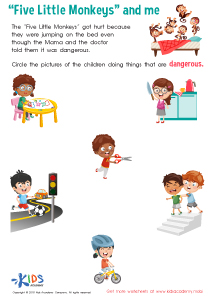Spelling practice Easy Building Vocabulary Worksheets for Ages 3-6
5 filtered results
-
From - To
Introducing "Spelling Practice Easy Building Vocabulary Worksheets for Ages 3-6" – the perfect resource to boost your child's vocabulary and spelling skills! Designed specifically for young learners aged 3 to 6, these engaging worksheets blend fun activities with educational content. Kids will explore letter sounds, simple words, and matching exercises, all crafted to develop early reading and writing proficiencies. With colorful illustrations and age-appropriate challenges, these printable worksheets make spelling practice enjoyable while nurturing a love for learning. Equip your child with the essential tools for language development with our expertly designed spelling practice worksheets. Let's make learning a joyful adventure!
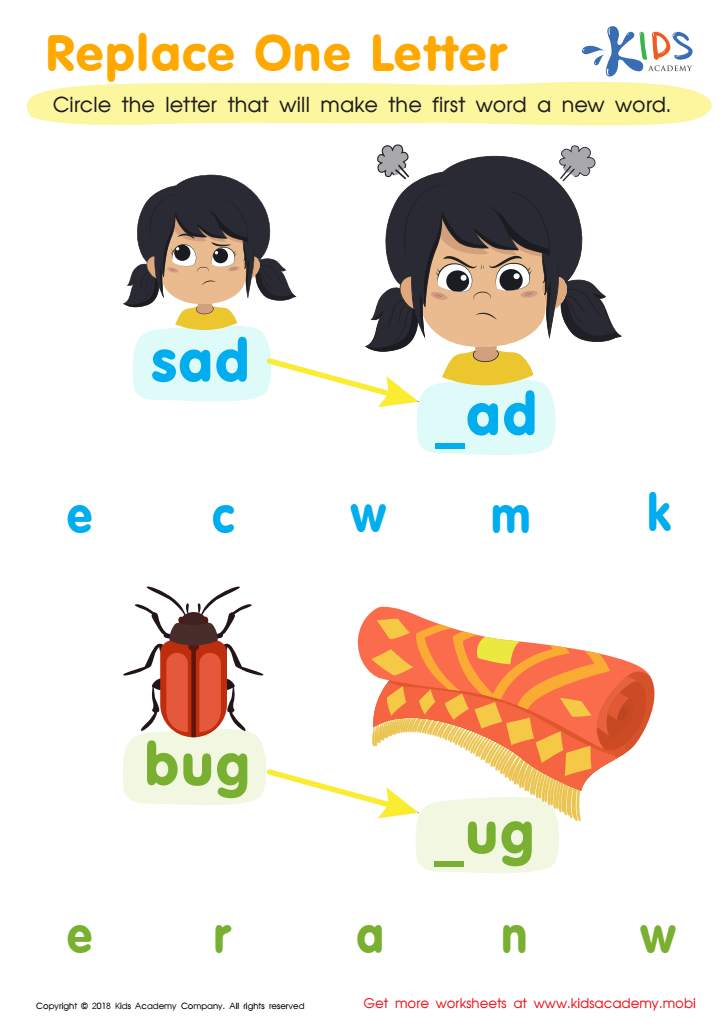

Replace One Letter Worksheet
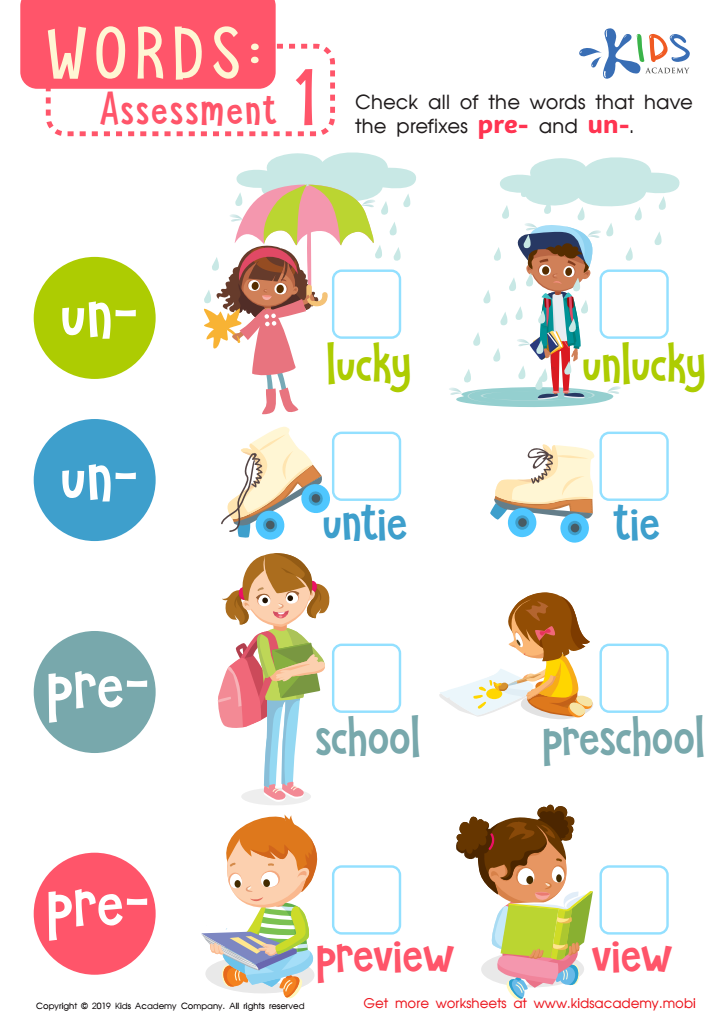

Words: Assessment 1 Worksheet
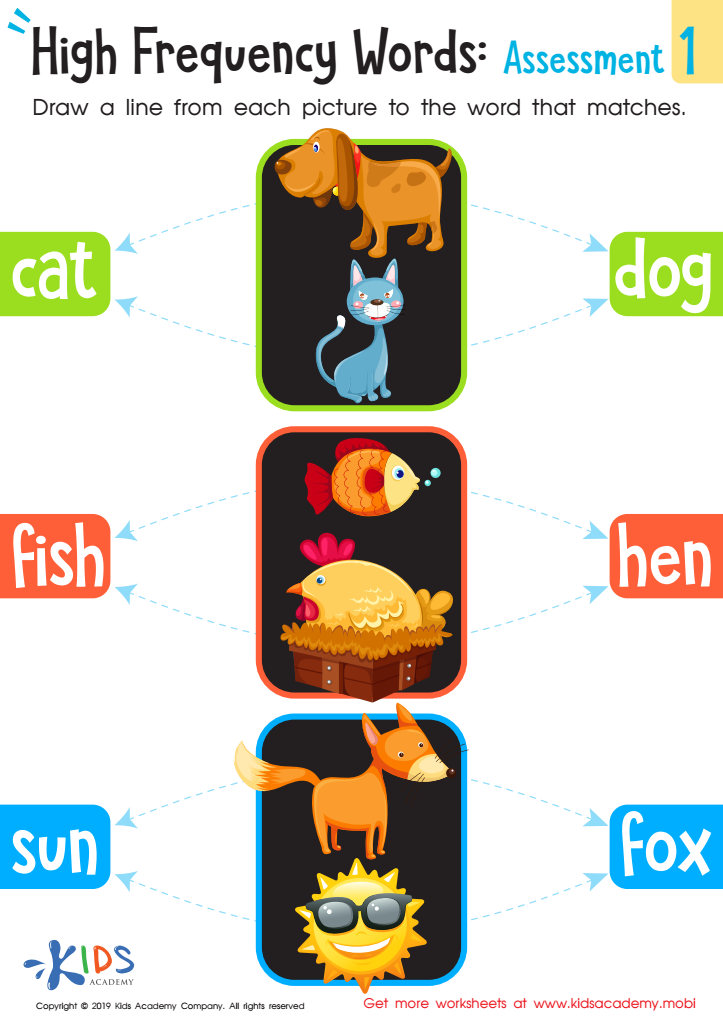

High Frequency Words: Assessment 1 Worksheet
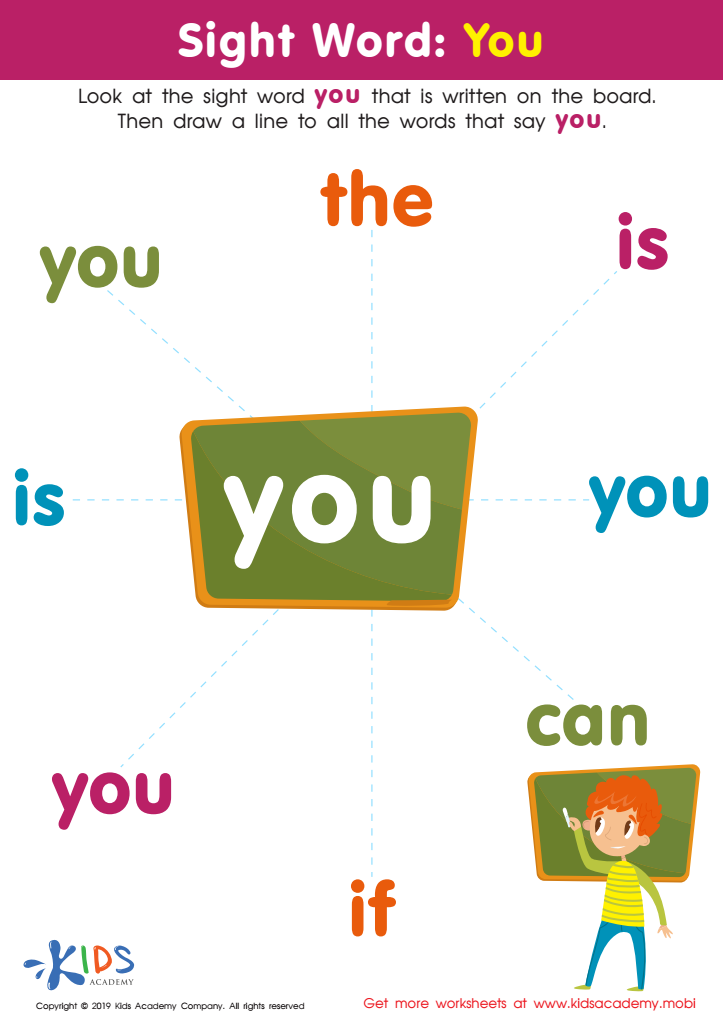

Sight Word You Worksheet
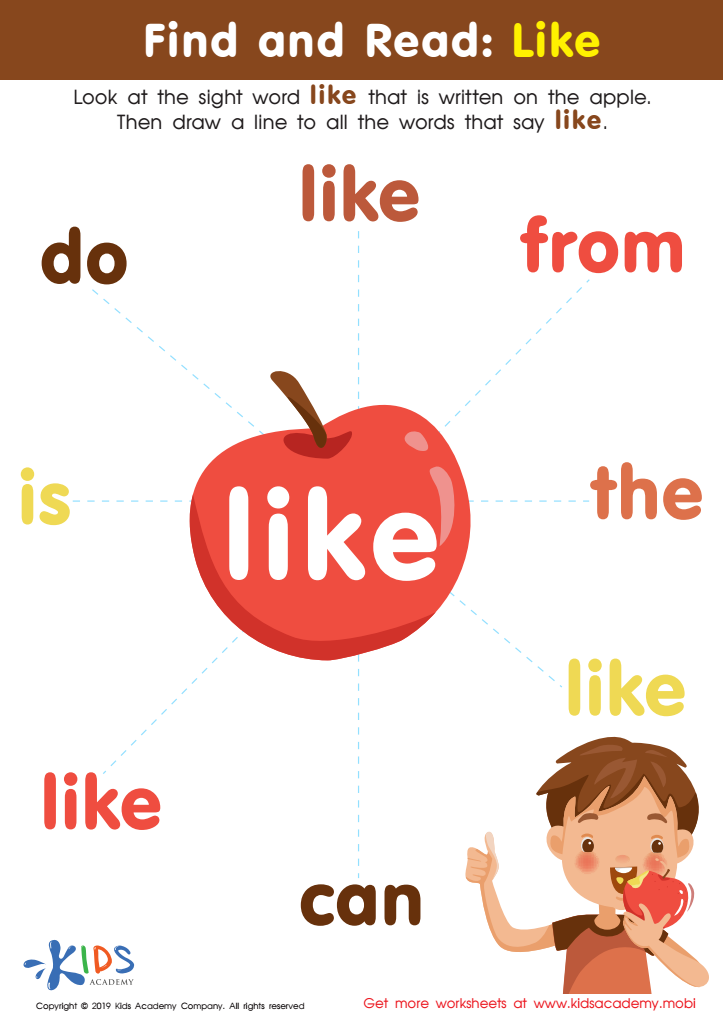

Find and Read: Like Worksheet
Parents and teachers should recognize the importance of spelling practice and vocabulary building in children aged 3-6, as these foundational skills are crucial for their overall language development and academic success. Early exposure to spelling provides young learners with essential language patterns, helping them understand the relationship between letters and sounds, which is a critical component of phonemic awareness. This, in turn, supports reading skills, enabling children to decode words more proficiently and comprehend reading material better.
Moreover, a rich vocabulary fosters effective communication. When children possess a broad bank of words, they can express their thoughts and ideas more clearly and precisely. This enhanced communication boosts their confidence and social interactions, supporting their emotional and social development.
Engaging in playful and interactive spelling activities stimulates cognitive development by helping children recognize patterns, improve memory, and develop problem-solving skills. Teachers and parents who incorporate enjoyable and age-appropriate spelling games or exercises create a positive learning atmosphere that nurtures curiosity and a love for learning.
In summary, prioritizing spelling practice and vocabulary development sets a strong linguistic foundation that benefits young children in multiple domains—cognitively, socially, and emotionally—laying the groundwork for future academic achievements and lifelong learning.
 Assign to My Students
Assign to My Students























